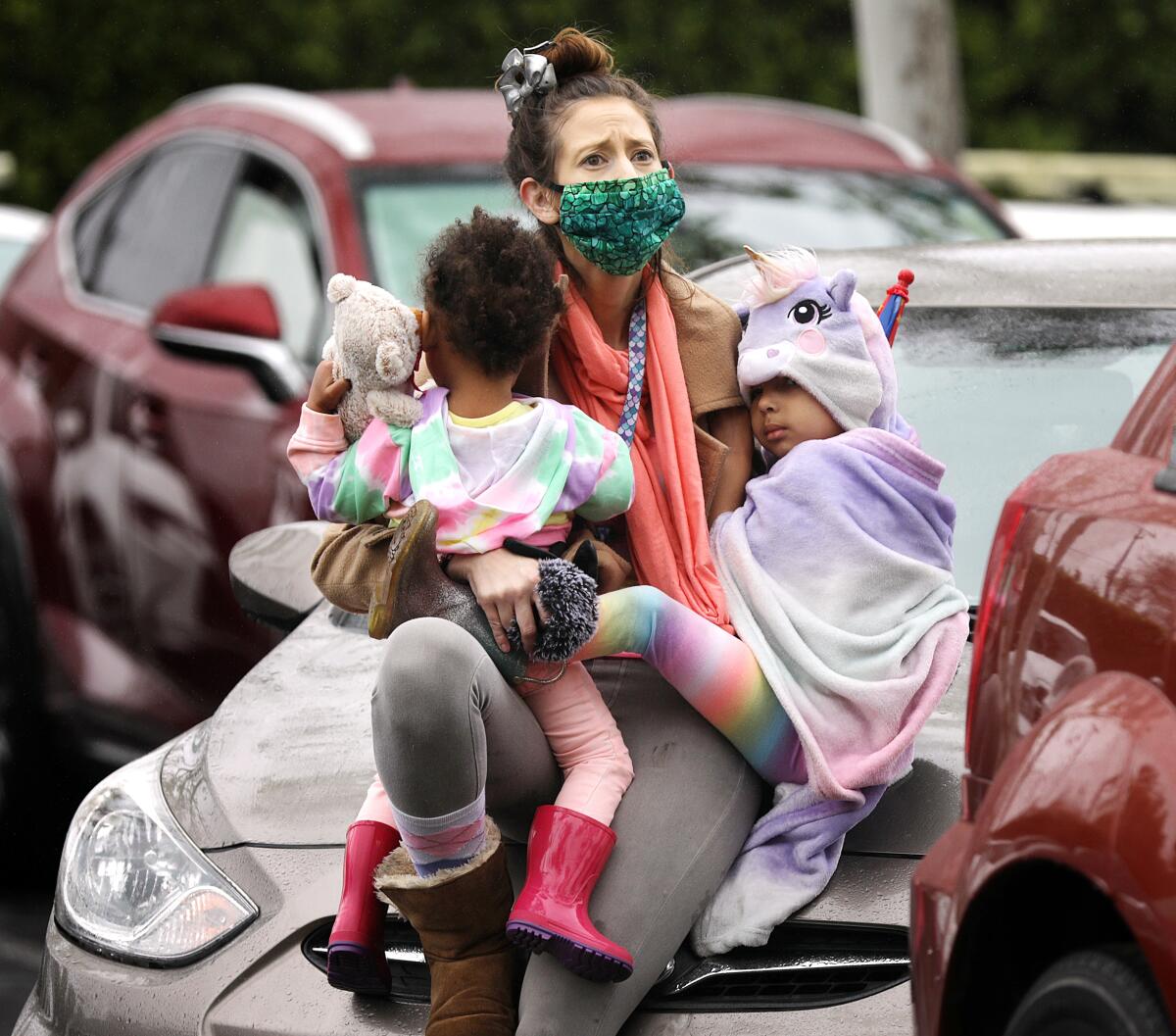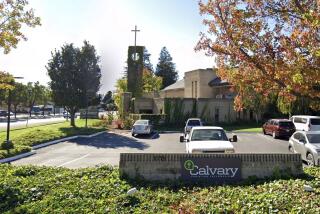California pastors’ request to allow in-person worship is denied by federal judge

Churches in Riverside and San Bernardino counties must continue to follow government orders banning in-person religious services to prevent the spread of the novel coronavirus, a federal judge ruled Wednesday.
At a hearing conducted by telephone Wednesday, U.S. District Judge Jesus G. Bernal refused to grant a temporary restraining order that would have prevented state and county officials from enforcing the ban, which was included in broader stay-at-home orders prohibiting gatherings and closing down many businesses.
Three pastors and one parishioner filed a lawsuit this month alleging that the stay-at-home orders violated their 1st Amendment religious freedoms and other constitutional rights.
Harmeet Dhillon, an attorney for the plaintiffs, argued that the judge should apply the constitutional standard of “strict scrutiny” to assess the legality of limiting worshipers to online services. She noted that some Californians, particularly in rural areas, do not have internet access.
Attorneys for the government countered that the COVID-19 pandemic, which has killed more more than 1,400 in California and more than 180,000 worldwide, justifies the use of emergency powers that restrict people’s movements and right to gather in houses of worship.
“Any harm the plaintiff suffers is significantly outweighed by the harm to the public health that this disease provides, that harm being a significant risk of severe sickness and death on a massive scale,” Deputy Atty. Gen. Todd Grabarsky said at the hearing.
Dhillon questioned why in-person religious services cannot be held if worshipers stay at least six feet apart, when laundromats and supermarkets remain open. She warned that if the restrictions continue, churches and other religious institutions will be driven underground, posing a greater risk to public safety than if they are allowed to legally gather.
“Religion is as central to people of faith as eating,” she said. “It is not optional. It is not weekend.”
Deborah Fox, an attorney for San Bernardino County acting Public Health Officer Erin Gustafson, said a church gathering is different from picking up a prescription or milk and eggs because it is a communal experience, not a quick stop to grab a few items.
“You can’t sit in a McDonald’s and have a burger and fries,” she said. “You can’t sit in Starbucks with a coffee and read the New York Times.”
Some of the plaintiffs in the case have shown their determination to share the same physical space as their parishioners.
James Moffatt of Church Unlimited in Indio was fined $1,000 for conducting a service on Palm Sunday.
On Easter Sunday, the church held a drive-in service, which was permitted by Riverside County only for that weekend. Photos on the church’s Facebook page show a full parking lot, with some worshipers standing on curbs or in between cars.
Another plaintiff, Patrick Scales of the Shield of Faith Family Church in Fontana, held an in-person Easter service in defiance of the stay-at-home orders. A video on the church’s Facebook page shows people in the pews cheering and applauding, many wearing masks and gloves but appearing to be closer to each other than six feet.
Bernal agreed with the defendants, who include Gov. Gavin Newsom and other state officials, as well as Riverside and San Bernardino county officials, that the pandemic justifies the government’s use of emergency powers, even at some cost to religious freedom.
“I do think the state has put forth some authority that during a state of emergency, the executive powers are in effect and that they are empowered to provide for emergency remedies which may infringe on fundamental constitutional rights,” Bernal said.
Dhillon requested a hearing for a preliminary injunction to stop the ban, which would cover similar legal ground as the arguments over the temporary restraining order.
In an interview, Dhillon said that even if she loses the case, she will have won a victory in getting state officials to clarify that churches can hold drive-in services if people stay in their cars.
“It’s better than nothing. It gives heart to people that they can see one another,” she said.
Dhillon said she is monitoring restrictions on religious gatherings in other parts of California and may file more lawsuits soon.
More to Read
Sign up for Essential California
The most important California stories and recommendations in your inbox every morning.
You may occasionally receive promotional content from the Los Angeles Times.










